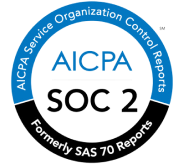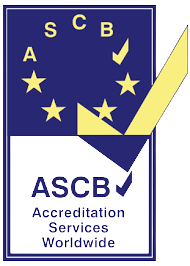While searching for an HR job, decide whether you want to work for a startup or a corporate. These two firms have different working cultures or styles. Therefore, read this blog post to understand the difference between corporate vs startup HR.
After that, you would know which is your job preference that matches your work style and personality. Then, going forward, your journey in the firm will be smooth, career-oriented, and highly effective.

Corporate Vs Startup HR: Deciding Factors For Understanding Their Differences:
-
Transparency
There is comparatively more transparency in startups than in corporates. That is often because limited people are working in startups. Corporate firms are bigger. There might be 100-1000 employees working in a corporate firm.
In such companies, conversations and decisions are seldom on time for numerous reasons. A single HR person cannot manage employees in large companies. However, with the existence of uKnowva HRMS, transparency can be monitored between teams and hierarchies.
With increased transparency in startups, trust is more. Often, employees can open quickly in a startup work culture. Therefore, rectifying mistakes from any end is possible to prevent losses.
That might not be the case in corporates. Every decision has to be smart, calculated, and foresighted. Management in larger companies has less tolerance for mistakes even if the level of transparency is not as clear as in smaller or newer firms.
-
Communication
While reading about corporate vs startup HR, it’s evident that communication channels are fast in the latter. HR persons can easily control the communication in startups with only a few people or departments. They can monitor, audit, measure, and evaluate the effectiveness of these communications.
In large corporates, understanding the communication channels is difficult. It takes time. 100-1000 working people are not easy to manage.
The communication at times gets delayed or prolonged. This is because there is a proper hierarchy of formal communication.
But HRs use the uKnowva Social Intranet platform to ease their burden on growing and large companies. Using this tool, employees easily chat, vote, and discuss on the server. It also helps to sort the employee queries on point.
-
Roles and responsibilities
HRs might have to accept and execute different roles and responsibilities in a startup. Often, one or two HR persons are managing the entire workforce in startups. With time, it becomes challenging. But HRs have to learn to multitask in the startup firm.
That’s not the exact case in corporate firms. In large companies, there are a bunch of HR professionals. In fact, it’s a whole new department where HR teams function to manage and monitor other departments.
So this difference between corporate vs startup HR is quite enriching and informative for new-age HRs.
We can say corporates have defined roles. There, HRs have limited responsibilities with greater impact. But startups have opposite cultures. There, HR persons have multiple functions with limited impact.
-
Skillset
In a startup, HR persons might have to use multiple skills with time. Because there are a limited number of people and more goals to achieve in a short time. So human resource officials have to build both soft and hard skills.
They might feel the pressure of learning and executing different skills from day one.
When in corporate firms, the case is entirely different. In large firms, human resource professionals will be solely hired on their core skills. These include talent acquisition, management, development, and engagement.
To accomplish other tasks in large firms, HRs can take the help of the agile HRMS like uKnowva. From this tool, it’s a manageable task for new HRs to monitor everyday employee activities.
This includes watching over employees for their competencies, performances, punctuality, etc. HRs can even directly stay in contact with their employees on this software, irrespective of their work locations.
With time, human resource professionals do not need to learn new skills. They can easily depend on the modern HRMS instead. Overall, it saves working hours and workforce efforts, and removes the heavy requirement for different skill sets.
-
Mentorship
Employees and HRs experience greater mentorship when working in a startup. However, that is not the same for HRs working in large companies or corporate firms. That is mainly because HRs have to be self-reliant, self-serving, and quite experienced when working in corporates.
Therefore, they do not need constant monitoring or mentoring in such firms. But when working in a startup, there is a greater chance for new HRs to join. However, with limited experience, they might not know how to tackle different candidates or clients.
They will end up having mentorship programs in startups. In fact, C-level executives are constantly monitoring and mentoring HRs and other employees in small firms.
However, they can still depend on the eLMS modules and webinars to be hosted on the ERPs, CRMs, or HRMS. For trusted software, HRs must check whether the tool is available online with greater accessibility and flexibility.
These tech tools allow HRs to guide their employees and teams on the spot and continuously. They can upload documents, videos, and other content to the system. Then, every newly hired person can access that content to learn how to smoothly transit into the firm.
So while studying corporate vs startup HR concepts, HRs must know if they want to indulge in mentorship programs or not.
There is often greater scope to learn and earn in startups. In contrast, corporates acknowledge the given talent of human resource persons. Later, they must continually prove themselves with a growth mindset anchored to their skills.
-
Working hours
In a startup, as an HR, you might have to work for 10-12 hours. The management expects this much from you as a human resource professional – the most trusted person to handle the workforce.
But in a corporate firm working hours are strict. You don’t need to sacrifice your personal life for professional commitment.
Instead, you might get provision to work from anywhere or use flexible working hours. You can strike a fine balance between your personal and professional life by doing so.
That’s why knowing the difference between corporate vs startup HR is essential. Because then, you can plan your personal life accordingly. It should be aligned with your professional goals too.
Conclusion:
Only you could know which type of HR culture is best for you. So from the above blog post, you can form a basic understanding of corporate vs startup HR.
Afterwards, it’s up to you. The decision is yours. Know which type of working style you would prefer and why. Then give interviews and get hired to succeed in your HR career like never before.












